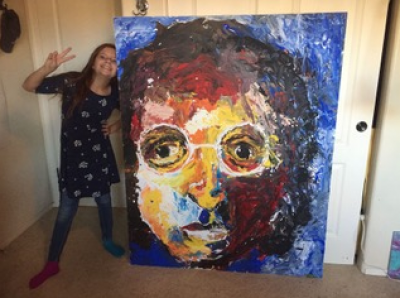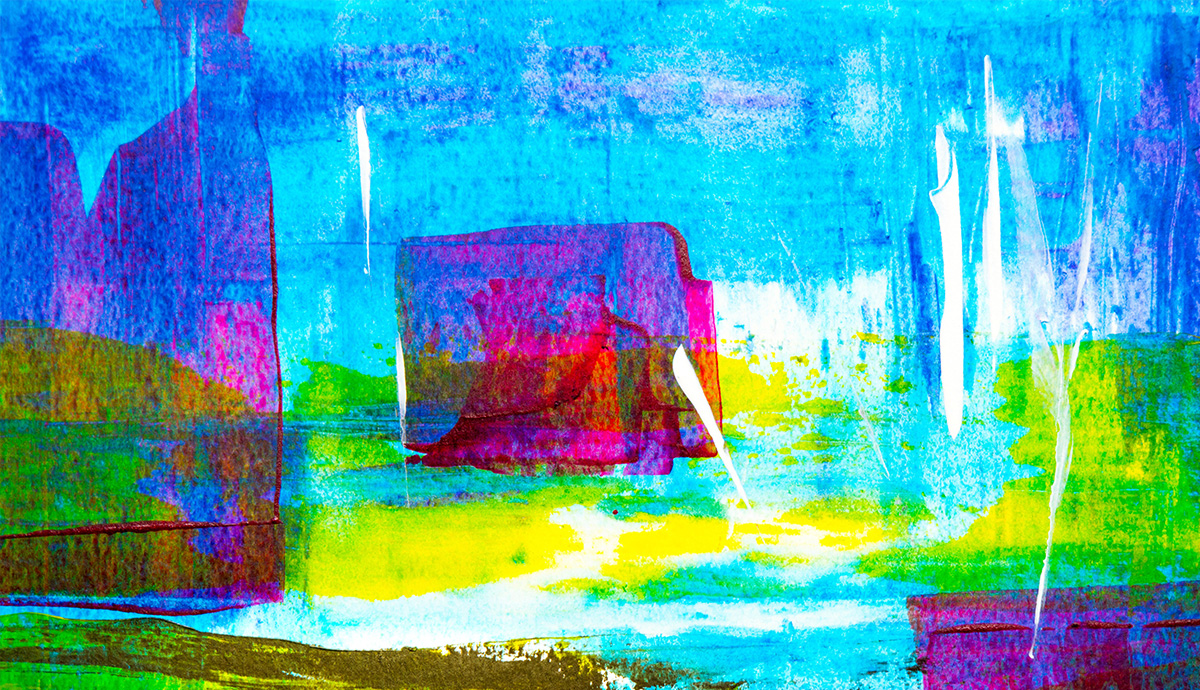So Many Steps Behind Her

My grandfather was a professional fighter. My father, brother, and uncle were Division I college athletes. My father went on to coach high school athletics for many years, and my uncle spent a summer bouncing between NFL training camps before the Cowboys finally cut him during preseason. To say I was raised in a culture of sports is an understatement, and I played them all—everyone in the family did, male and female alike. Athletically gifted, we loved playing in school, at home, wherever.
What was impressed upon me, however, wasn’t talent but skill. And skill came from practice, LOTS of practice, so much practice that come game time I would be the perfect human machine in perfect control of every mental and muscle fiber of my being. And from this ultimate control could be borne the ultimate freedom to perform beautiful things—one hundred yard kickoff returns, rocket shots to side netting from the 18, clutch fade-aways as time ran out. I drilled and drilled and drilled. “Practice doesn’t make perfect,” my dad used to say, “perfect practice makes perfect.”
Naturally this drilling of athletic philosophy bore holes in the rest of my life, including my writing life, and it has not made my writing life particularly pleasant. For many years, I drilled myself with poems and poem-making. And perhaps, in some ways, it’s paid off. But it’s also made me an incredibly uptight writer who, for many years, overcooked his language to the point of I-don’t-even-know-what. Inedible gruel. I had all the poetic muscles in the world but absolutely no flexibility with which to use them.
And so having an artistic daughter so different from myself has been life changing. At age eight, when Makena learned about painter Ted DeGrazia in school, her own life was changed—and she’s been slinging acrylics across the office carpet ever since. What I love about her method is that, though she has developed one method in the last four years, it is loose and uninhibited. She has discarded her mixing palette in favor of squirting paint directly onto the canvas and swirling it around with her knives impasto-style, come what may. She can be surprisingly exact with the colors she creates, yet completely indifferent when that color drips and splats in places she didn’t intend for it to fall.
No-no. Not indifferent. She is welcoming. I once asked her about a splat she obviously had flung onto her canvas by accident. She shrugged and said, “I don’t know. I like it.” And when her painting was complete—and perhaps replete with swipes and dots that had found their own homes of their own volitions—that little happy accident indeed looked perfect where it was. In fact, I would argue Makena’s ability to permit such accidents is part of her observable talent as an artist, of what defines her style and gives her paintings such strokes of genius.
You know, there’s that whole Frost thing about playing tennis without a net. And there’s a lot of truth to that. Maybe it’s like painting without a canvas. There’s some truth to that too. My office floor, utterly spackled with paint of many colors, can testify for it. But there’s also something about having the freedom to play tennis however the hell you please, to allowing art to shape itself according to its own whims and needs. I love how Makena breathes into her paintings and then lets the paintings come alive as they will. Watching her has made me realize I need to do more of the same in my own work, maybe in my life. It has made me realize that part of being in control is embracing the independence of things outside it, maybe changing my plans to accommodate theirs rather than the other way around.
Makena, like me, is on the perfectionist end of the spectrum. Unlike me, she allows her art to approach perfect by giving it the liberty to do so rather than by forcing it in that direction. Whether this is the result of her youth, of her innate abilities, or of a wisdom beyond her years, I don’t know. But I hope she holds onto it tightly. Or maybe that she lets it go. I’m so many steps behind her, still trying to figure it out.

Recommended
Nor’easter
Post-Op Appointment With My Father
Cedar Valley Youth Poet Laureate | Fall 2024 Workshop





